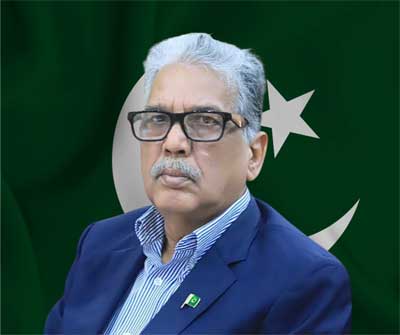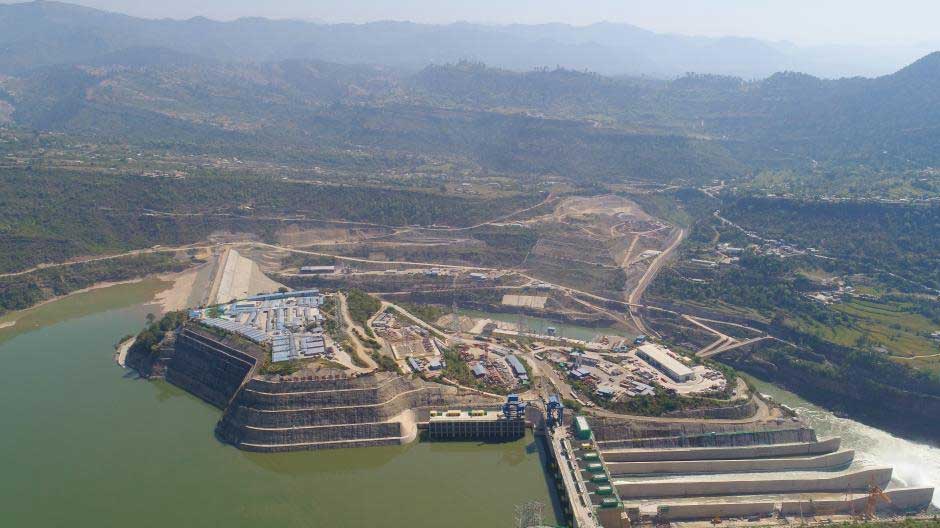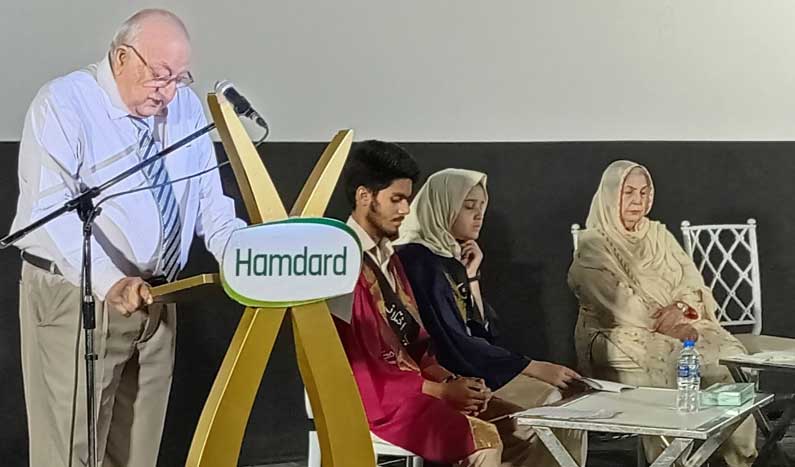
Pakistan, endowed with abundant water resources, has long recognized hydropower as a sustainable solution to meet its growing energy demands. However, fully tapping into this potential has been hindered by financial, technical, and infrastructure challenges. In recent years, China North Industries Corporation (NORINCO) has been instrumental in overcoming these obstacles, playing a pivotal role in the development of Pakistan’s hydropower sector.
Through strategic partnerships and large-scale projects, NORINCO has significantly contributed to Pakistan’s renewable energy targets and sustainability goals. This impact was underscored during the recent visit of the Pakistan Media Delegation to NORINCO’s headquarters in Beijing, accompanied by the CEN team.
NORINCO’s Strategic Role in Hydropower Development
As one of China’s largest state-owned enterprises, NORINCO has established itself as a key partner in Pakistan’s efforts to develop its hydropower potential. Under the China-Pakistan Economic Corridor (CPEC) framework, NORINCO has been involved in numerous hydropower projects that aim to improve Pakistan’s energy infrastructure while promoting renewable and clean energy sources.
Hydropower is a cornerstone of Pakistan’s energy strategy, as it not only provides a sustainable and reliable source of electricity but also helps reduce the country’s reliance on expensive and environmentally harmful fossil fuels. NORINCO’s experience in hydropower construction and project management has made it a valuable partner in realizing these goals, bringing both financial investment and technical expertise to Pakistan’s energy sector.
Key Projects: Harnessing Pakistan’s Water Resources
One of NORINCO’s flagship hydropower projects in Pakistan is the Karot Hydropower Project, a 720 MW power plant located on the Jhelum River. This project is one of the first energy initiatives launched under CPEC and represents a significant step toward achieving Pakistan’s renewable energy targets. The Karot project, developed through a public-private partnership between NORINCO and Pakistan, will provide clean electricity to millions of households and industries. By harnessing the natural flow of the Jhelum River, the Karot project is expected to generate around 3.2 billion kWh of electricity annually, substantially reducing Pakistan’s dependence on fossil fuels and contributing to its long-term energy security.
In addition to Karot, NORINCO is heavily involved in the Suki Kinari Hydropower Project, located on the Kunhar River in Khyber Pakhtunkhwa province. This 870 MW project is one of the largest privately funded hydropower plants in Pakistan, showcasing NORINCO’s commitment to supporting Pakistan’s transition to renewable energy. Suki Kinari is expected to produce over 3 billion kWh of clean electricity per year, further enhancing Pakistan’s capacity to meet its growing energy needs. The project is also creating employment opportunities and stimulating local economies by providing jobs during its construction phase and through the long-term operation of the plant.
NORINCO’s involvement in these projects demonstrates its ability to execute large-scale, complex hydropower initiatives in challenging environments. These projects are not only vital for Pakistan’s energy security but also for its sustainability goals, as they reduce greenhouse gas emissions and align with global efforts to combat climate change.
Significance for Pakistan’s Renewable Energy Targets
Pakistan has set ambitious targets for increasing the share of renewable energy in its total energy mix. The government aims to produce at least 30% of the country’s electricity from renewable sources by 2030. NORINCO’s hydropower projects play a critical role in helping Pakistan achieve this target by providing a clean and reliable source of energy.
Hydropower, as a renewable resource, offers numerous advantages for Pakistan. Unlike fossil fuels, it does not produce carbon emissions, making it an environmentally friendly option for power generation. Additionally, hydropower plants have longer lifespans compared to thermal power plants and can provide continuous energy as long as water resources are available. This makes hydropower a key component of Pakistan’s energy strategy, particularly as the country seeks to reduce its dependence on imported oil and gas.
NORINCO’s projects are also helping Pakistan diversify its energy mix. For decades, Pakistan has relied heavily on thermal power plants that use imported fuel, leaving the country vulnerable to price fluctuations in global energy markets. Hydropower provides a more stable and cost-effective solution, reducing the country’s exposure to external energy shocks and contributing to economic stability.
Promoting Sustainability and Environmental Stewardship
One of the key benefits of NORINCO’s hydropower projects is their contribution to environmental sustainability. Hydropower is considered one of the cleanest sources of energy, as it produces zero direct emissions of carbon dioxide and other harmful pollutants. By developing hydropower plants like Karot and Suki Kinari, NORINCO is helping Pakistan reduce its carbon footprint and mitigate the impacts of climate change.
Moreover, hydropower projects have the potential to improve water management and irrigation systems in Pakistan. Many of the country’s hydropower plants are built on rivers that are also used for agriculture and drinking water. The development of dams and reservoirs as part of these projects can help regulate water flow, reduce flooding risks, and ensure a more consistent water supply for agricultural purposes, which is critical for Pakistan’s agrarian economy.
Additionally, NORINCO’s hydropower projects contribute to Pakistan’s environmental goals by incorporating sustainability measures during construction and operation. For instance, the Karot Hydropower Project includes provisions for environmental protection, such as measures to preserve local ecosystems and minimize the impact on aquatic life. These efforts reflect NORINCO’s commitment to responsible development and environmental stewardship in Pakistan.
Long-Term Economic Impact
The development of Pakistan’s hydropower potential through NORINCO’s projects is not only about meeting current energy needs but also about supporting long-term economic growth. Reliable energy is a prerequisite for industrial expansion, job creation, and improved living standards. As Pakistan’s population and economy continue to grow, so too will its demand for electricity. Hydropower provides a scalable and sustainable solution that can meet this growing demand while supporting the country’s broader economic goals.
In addition to direct economic benefits, NORINCO’s projects are helping to build local capacity in the energy sector. By partnering with Pakistani firms and providing training opportunities, NORINCO is transferring knowledge and skills to local engineers and workers. This capacity-building effort ensures that Pakistan will be able to manage and maintain its hydropower infrastructure in the long term, further enhancing the sustainability and resilience of its energy sector.
NORINCO’s role in developing Pakistan’s hydropower potential is a vital component of the country’s renewable energy strategy. Through projects like the Karot and Suki Kinari hydropower plants, NORINCO is helping Pakistan harness its vast water resources to meet growing energy demands while reducing its dependence on fossil fuels. These initiatives not only contribute to Pakistan’s renewable energy targets but also promote environmental sustainability and long-term economic development. As Pakistan continues to invest in renewable energy, NORINCO’s expertise and commitment to hydropower development will play a crucial role in shaping the country’s energy future.




